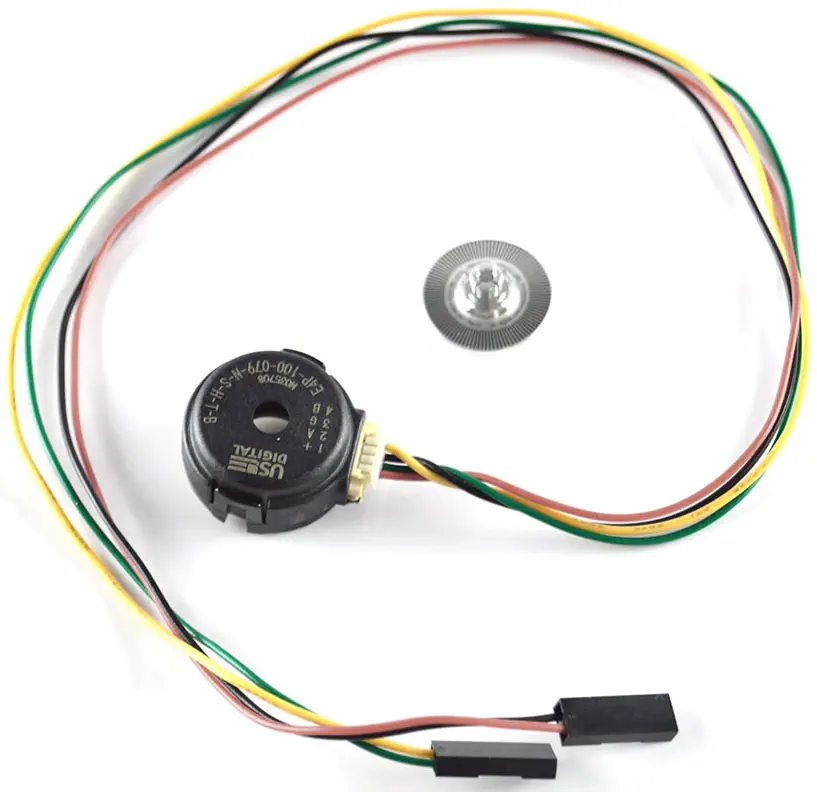Payments and Security
Your payment information is processed securely. We do not store credit card details nor have access to your credit card information.
Description
- USDigital Quadrature encoder top case (screws into Lexan below)
- USDigital Quadrature encoder bottom case
- USDigital PCB and encoder disk
- Lexan spacer (please remove plastic from both sides)
- Two mounting screws to connect bottom base to lexan
- Foam tape with adhesive backing on both sides
- Connector cable
PDF file
- Cycles per revolution: 100
- Quadrature counts per revolution: 400
- Frequency: 30kHz




